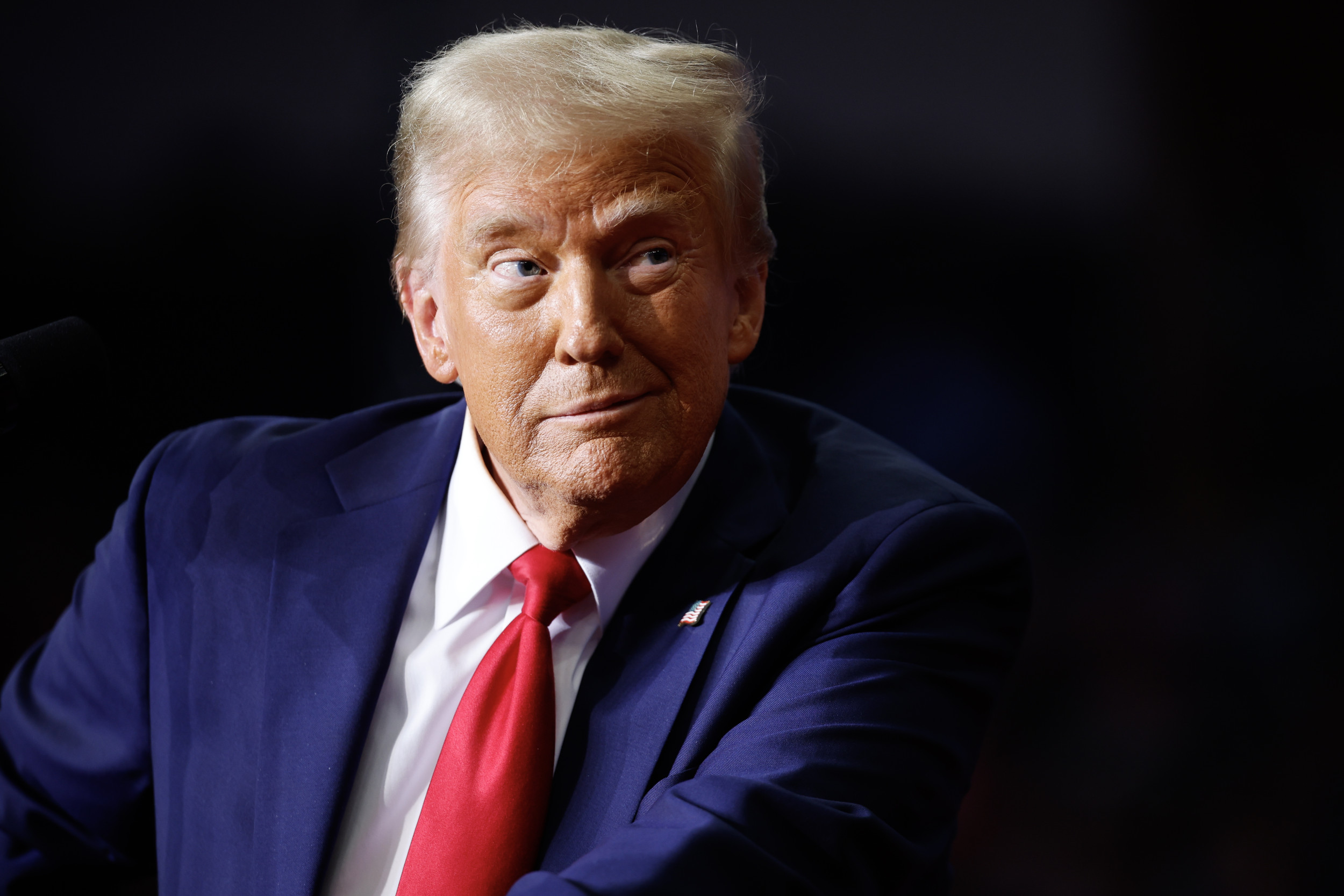Trump's Tariffs: $174 Billion Wipeout For Top 10 Billionaires

Table of Contents
The Billionaires Most Affected by Trump's Tariffs
The impact of Trump's tariffs wasn't evenly distributed among the ultra-wealthy. Specific sectors bore the brunt of the economic fallout, disproportionately affecting certain billionaires. Let's examine some key examples:
-
Jeff Bezos (Amazon): Amazon, heavily reliant on international trade and global supply chains, experienced increased costs due to tariffs on imported goods. This, coupled with increased shipping costs and consumer hesitancy, likely contributed to a reduction in Amazon's overall profitability, affecting Bezos' net worth. The fluctuation in Amazon's stock price following tariff announcements further reflects this impact. [Link to relevant news article about Amazon and tariffs].
-
Mark Zuckerberg (Meta): While Meta (formerly Facebook) isn't directly involved in manufacturing subject to tariffs, the global economic slowdown caused by the trade war likely impacted advertising revenue, a primary source of Meta's income. Reduced consumer spending and uncertainty in the global market translated to lower ad spending, consequently impacting Zuckerberg's wealth. [Link to relevant financial report showing Meta's revenue during the tariff period].
-
Elon Musk (Tesla): Tesla, with its global manufacturing and supply chains, felt the impact of tariffs both directly through increased input costs and indirectly through market uncertainty. Supply chain disruptions caused delays and increased expenses, potentially affecting Tesla's profitability and thus Musk's net worth. [Link to relevant news article on Tesla's supply chain issues during the tariff period].
Bullet Points:
- Tariffs increased costs for raw materials and components, impacting profit margins.
- Stock market volatility related to tariff announcements created uncertainty and reduced valuations.
- Decreased consumer spending in response to higher prices negatively impacted sales.
The Mechanisms Behind the Wealth Decline
The decline in the wealth of these billionaires wasn't a direct result of tariffs levied specifically on their companies. Instead, it was a consequence of a complex interplay of economic factors triggered by the trade war.
-
Supply Chain Disruption: Tariffs created significant disruptions in global supply chains, leading to delays, increased costs, and shortages. This ripple effect affected numerous industries, impacting businesses' ability to produce and deliver goods efficiently.
-
Reduced Consumer Spending: Higher prices on imported goods due to tariffs led to reduced consumer spending. This decrease in demand further impacted businesses' profitability across numerous sectors.
-
International Trade Slowdown: The trade war led to a decrease in international trade, reducing the overall economic activity and impacting businesses heavily reliant on global markets. This slowdown impacted profitability and market valuations.
Bullet Points:
- Increased costs were passed onto consumers, leading to inflation and reduced purchasing power.
- Uncertainty in the global market led to decreased investment and economic growth.
- Businesses adapted to the tariffs, resulting in higher prices, reduced profits, and job losses.
The Broader Economic Implications of Trump's Tariffs
The consequences of Trump's tariffs extended far beyond the top 10 billionaires. The overall economic impact was felt by average Americans, small businesses, and the US economy as a whole.
-
Job Losses and Economic Stagnation: Some sectors experienced job losses due to reduced production and business closures resulting from tariffs and the subsequent economic slowdown. The overall economic growth also slowed during this period.
-
Increased Prices for Consumers: Tariffs directly led to increased prices for consumers on imported goods, reducing purchasing power and affecting household budgets.
-
Long-Term Effects on US Competitiveness: The trade war raised concerns about the long-term impact on US competitiveness in the global market. Retaliatory tariffs from other countries further hindered US exports.
Bullet Points:
- Increased inflation eroded consumer purchasing power, impacting economic growth.
- Some industries benefited from protectionist measures, but the overall economic effect was negative.
- The long-term consequences on US global trade relationships are still being evaluated.
Alternative Perspectives and Counterarguments
While the negative economic impacts of Trump's tariffs are significant, it's important to acknowledge alternative viewpoints. Some argue that the tariffs were necessary to protect specific US industries and address long-standing trade imbalances.
-
Protectionism and Economic Nationalism: Supporters argue that protectionist measures are necessary to safeguard domestic industries from unfair foreign competition and promote economic nationalism.
-
Addressing Trade Deficits: Proponents point to the potential for reducing trade deficits with specific countries as a positive outcome of the tariffs.
-
Long-Term Growth Potential: Some argue that while there may have been short-term negative impacts, the tariffs could lead to long-term growth by fostering domestic manufacturing and reducing reliance on foreign goods.
Bullet Points:
- Specific industries, like steel, may have seen temporary gains from protectionist measures.
- Some argue that the long-term benefits of increased domestic production outweigh the short-term costs.
- Further research is needed to fully assess the long-term effects of the tariffs on different sectors.
Conclusion
Trump's tariffs resulted in a significant financial loss for the top 10 billionaires, estimated at $174 billion. This figure represents a substantial impact, reflecting the wider economic consequences of the trade war. Beyond the ultra-wealthy, the tariffs led to job losses, increased consumer prices, and raised concerns about the long-term competitiveness of the US economy. While arguments for protectionism exist, the overall impact of Trump's tariffs appears to have been detrimental to significant portions of the US economy.
Further research into the long-term effects of Trump's tariffs is crucial to understanding their lasting impact on the American economy and the wealth distribution amongst its citizens. Learn more about the lasting impact of Trump's tariffs and their effects on billionaire wealth and the broader economy. Continue your research to understand the complex relationship between trade policy and economic outcomes.

Featured Posts
-
 Is Daycare Right For Your Family A Practical Guide
May 09, 2025
Is Daycare Right For Your Family A Practical Guide
May 09, 2025 -
 New Canola Sources For China A Look At The Post Canada Landscape
May 09, 2025
New Canola Sources For China A Look At The Post Canada Landscape
May 09, 2025 -
 Madeleine Mc Cann Case Womans Dna Test Results And Claims
May 09, 2025
Madeleine Mc Cann Case Womans Dna Test Results And Claims
May 09, 2025 -
 Wynne Evans Responds To Strictly Come Dancing Return Calls The Truth Will Out
May 09, 2025
Wynne Evans Responds To Strictly Come Dancing Return Calls The Truth Will Out
May 09, 2025 -
 Palantir And Nato A New Deal Revolutionizing Ai In Public Sector
May 09, 2025
Palantir And Nato A New Deal Revolutionizing Ai In Public Sector
May 09, 2025
Latest Posts
-
 Nottingham Attack Survivors Speak Out Their Stories Of Resilience
May 09, 2025
Nottingham Attack Survivors Speak Out Their Stories Of Resilience
May 09, 2025 -
 Nottingham Attacks Survivors Share Their Stories
May 09, 2025
Nottingham Attacks Survivors Share Their Stories
May 09, 2025 -
 Former Becker Sentencing Judge Heads Nottingham Attacks Investigation
May 09, 2025
Former Becker Sentencing Judge Heads Nottingham Attacks Investigation
May 09, 2025 -
 Retired Judge Deborah Taylor To Lead Nottingham Attacks Inquiry
May 09, 2025
Retired Judge Deborah Taylor To Lead Nottingham Attacks Inquiry
May 09, 2025 -
 Nottingham Attacks Inquiry Retired Judge Appointed
May 09, 2025
Nottingham Attacks Inquiry Retired Judge Appointed
May 09, 2025
